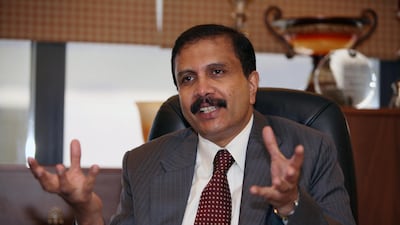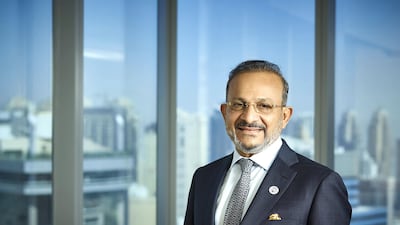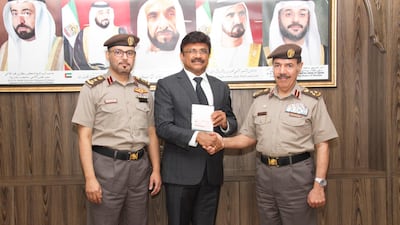UAE leaders and businessmen have welcomed the government’s decision to grant citizenship to some residents.
They said the new legal changes, announced on Saturday, would help many settle down in the UAE and contribute to the country's growth.
Minister of State Zaki Nusseibeh said it was an important step that would prepare the country for the future.
He said it reflected the UAE's policy on tolerance. The country not only welcomed people of different nationalities to live, work and prosper in the UAE but also gave them the option to call it their homeland.
“It will prepare the groundwork for the next 50 years of development, which is in line with the country’s 2071 objectives to make the UAE a global leader,” Mr Nusseibeh said.
“In addition to attracting the best minds and intellectuals to share in this vision, the UAE is also investing heavily in education and culture to build a knowledge-based society that is capable of facing the challenges of the new century.”
Under the new rules, professionals and academics will have the chance to become UAE citizens and at the same time retain their original nationality, allowing them to become dual citizens.
Prof Ammar Kaka, provost and vice principal for Heriot-Watt University Dubai, called the legal changes a historical move.
“It will go a long way in retaining the best and the brightest brains, and boost the overall development of the UAE,” he said.
“Under the National Agenda, the goal of the UAE is to transition to a knowledge-based economy. Universities will have a key role to play in nurturing and developing talent, and we look forward to supporting the vision of government to the best of our capabilities.
“We are sure that these changes to the citizenship law will attract quality talent and boost the pace of economic growth.”
Dr Azad Moopen, chairman and managing director of Aster DM Healthcare, said many people who had worked in the country for decades would be rewarded for their contribution.
“It is heartwarming and exciting to hear the announcement to allow select categories of people in the UAE to hold dual citizenship. While it will help many people who have played a significant role in the development of the country, it will also help to attract new talents in various specialised fields to the country,” he said.

Rizwan Sajan, founder and chairman of real estate company Danube, called the new law a "game-changing initiative".
“It is the most exciting piece of news that we have come across in a long time. It will help us join hands with our Emirati friends in reshaping the future of the nation that we can call ours also,” he said.
“Today’s landmark announcement to offer citizenship to talented foreign professionals, scientists and entrepreneurs will attract a global talent pool.”
Dr Santosh Kumar Sharma, medical director and consultant neurosurgeon at NMC Royal Hospital in Dubai Investment Park, said the decision would attract the best talent to the Emirates.
“The decision is welcomed as it includes doctors who are highly qualified and experienced in their field. Recognising their contribution and honouring citizenship is the ultimate reward for them,” he said.
Dr Bhushan Jayade, consultant oral and maxillofacial surgeon at the same hospital, said the initiative would improve medical services and medical tourism in the country.
"This will certainly attract many highly skilled medical professionals to come to the UAE. It is a great initiative to get talented individuals to come to this nation and help build a sustainable future," he said.
Citizenship is difficult to obtain in the Gulf and is not traditionally offered to foreigners.
The new rules do not provide people with a path to citizenship that can be applied for.
Instead, skilled professionals would be nominated by government or royal court officials. This includes the Cabinet, the executive council of each of the seven emirates, the rulers' courts, or their crown princes.
People eligible for nomination include investors, individuals with specialised professions – such as doctors or scientists – as well as artists and other "talented" or "creative" people.
The changes to the law also allow the families – the spouse and children – of those eligible to receive citizenship. The family may also retain their current nationality.
The government is yet to set out how nominees would be identified.
Two years ago, the UAE began a new programme to secure the talents of its brightest and best residents for decades to come.
In May 2019, the UAE Cabinet approved 10-year residency visas for five categories of expatriates: investors, entrepreneurs, chief executives, scientists and outstanding students.
Later, the authorities announced a significant expansion of the golden card scheme, allowing medical doctors, a wide range of scientists, data experts, people with backgrounds in computer and electrical engineering and those with AI and programming expertise to qualify for the long-term visa.














